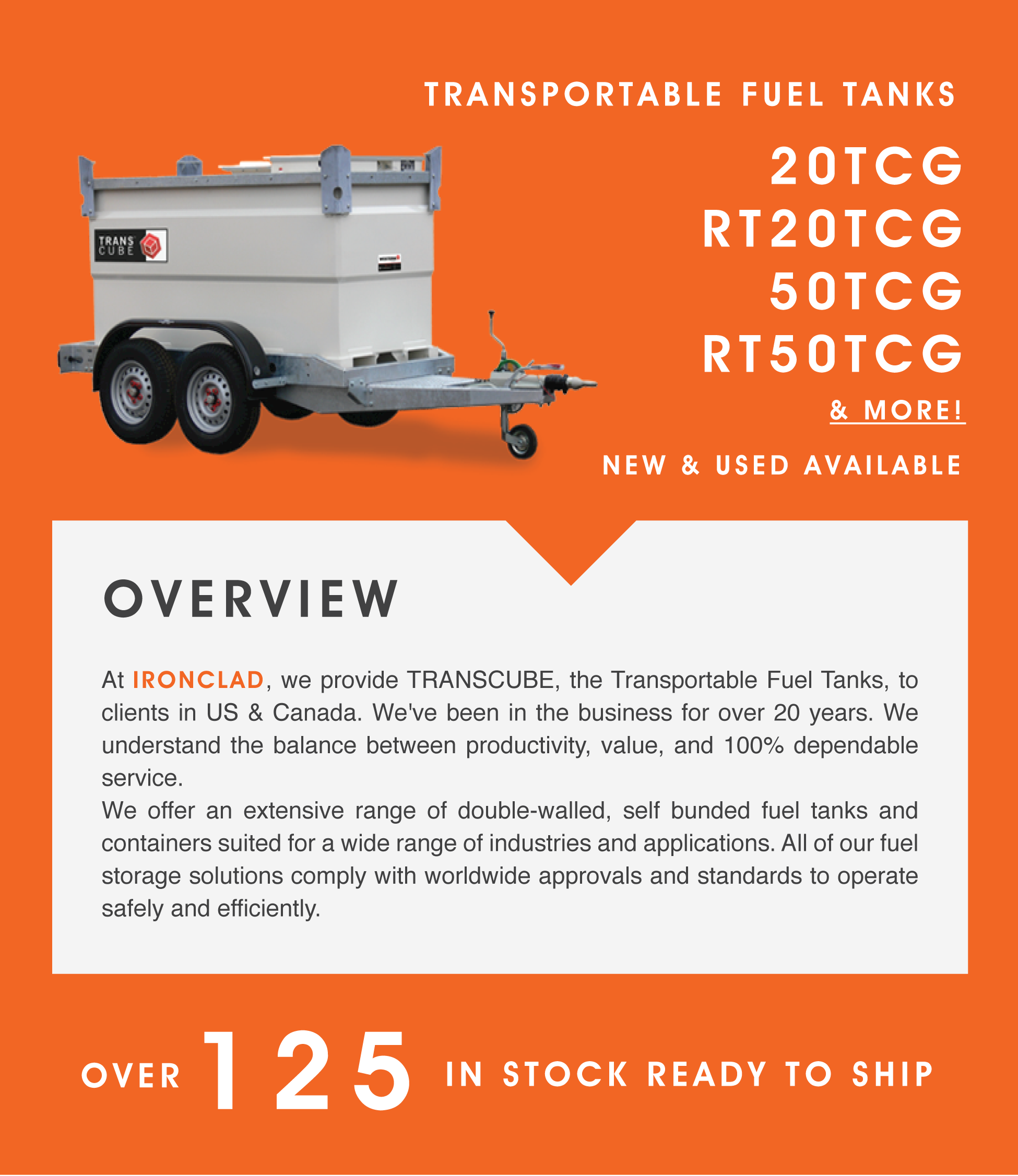- Home
- Blog
Jan 27

What To Consider before Buying a Fuel Tanks
What To Consider before Buying a Fuel Tanks
Asking yourself these questions will help you determine works best for you. Just be sure to know:
- Local & federal regulations
- Desired capacity accounting for safe-fill and pump intake
- If a transportable tank is needed
- Type of equipment being fueled
- Main considerations for your unique applications
In a market saturated with a wide variety of fuel storage tank options, choosing the right one can be a challenge. These are some questions you should ask yourself and your fuel storage tank provider before deciding what fuel tank is right for you:
WILL YOUR TANK MEET FEDERAL AND LOCAL REGULATIONS?
There are regulations that cover tanks that are transported full (or even with residue) and other regulations that handle permanent installations. For road transportation, you will need to comply with Federal Regulations as set out in 49CFR Parts 100-185.
Stationary installations are usually administered by local fire marshals’ offices. The fire departments sometimes have their own code based on specific or unique requirements of their geographic territory. They also often have different rules based on what fuel is being stored and whether they deem the tank to be a permanent tank or a stationary tank. Generally, fire departments follow the National Fire Protection Association Regulation 30 (Flammable and Combustible Liquids Code) and 30A (Code for Motor Fuel Dispensing Facilities and Repair Garages).
In addition, the Environmental Protection Agency has a program called the Spill Prevention, Control, and Countermeasure (Known ass SPCC). This applies to some facilities based on the location, activity and quantity of fuel stored. This may or may not apply to You.
HOW MUCH FUEL ARE YOU PLANNING TO HOLD?
You want to be sure to use a fuel storage tank that can meet your capacity needs. Each fuel tank refuel creates additional spill risks, chances for operator error, delivery costs and truck traffic. In most cases, we recommend that you use a tank that can hold approximately 1 month’s supply of fuel.
In general, larger fuel tanks provide a more cost effective solution for storing fuel, but you want to avoid having fuel stand for too long. Also, when looking at different capacities, be sure to calculate the safe-fill of any tank you consider (95% of the tank’s brim-fill capacity) and take into account the fuel tank pump intake (the amount of fuel that the suction hose leaves the bottom of the tank).
WILL YOU NEED TO TRANSPORT YOUR TANKS?
If you are not installing the fuel tank, but rather using it as a temporary fuel storage for job sites, events, seasonal programs, etc., it may be beneficial for you to use a transportable fuel tank. Transportable fuel tanks must be designed and tested to withstand the dynamic movement of fuel during transportation. They must also be approved and comply with the rules laid out in 49CFR.
If you plan on using a trailer to tow the tank around your jobsite, you need to consider what approvals your trailer will need to meet as well. Trailers can be approved for towing onsite only or for highway use.
If you have any questions or would like a quote on our tanks, please CALL RUSSELL 206-588-2272



